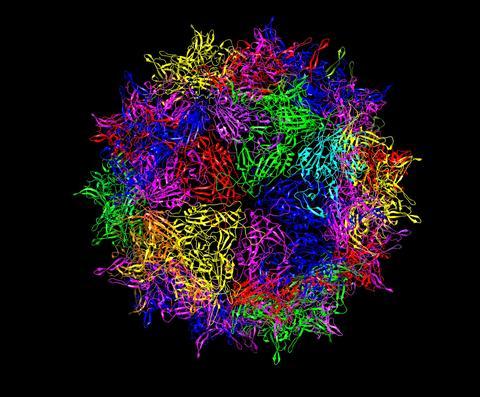The United States Pharmacopeia (USP), the U.S. Department of Commerce’s National Institute of Standards and Technology (NIST) and The National Institute for Innovation in Manufacturing Biopharmaceuticals (NIIMBL), have announced a research collaboration to assess analytical methods and develop standards for adeno-associated virus (AAV), an important mechanism for delivering gene therapies.

Credit: Jazzlw, CC BY-SA 4.0
AAVs are particularly useful for gene therapies because they are not known to cause human disease and cannot replicate on their own. AAV-based therapies are currently used to treat a type of inherited retinal dystrophy that causes blindness and spinal muscular atrophy in children, and treatments for many more diseases are currently being developed. However, to use AAVs most effectively, scientists need to accurately measure attributes related to their quality. These attributes include the purity of the AAV product and the relative number of virus particles that contain the full genetic payload.
At a workshop hosted by NIIMBL in 2019, academic and industry scientists, product developers, instrument manufacturers and other stakeholders identified needs for improved consistency of measurement methods and physical standards for AAV-based products as top priorities.
“AAV is important because these are critical components to manufacture a variety of gene and cell therapy products,” explained Kelvin Lee, NIIMBL institute director. “By addressing the quality attributes assessment of viral vectors, the field of gene therapies as a whole will benefit from access to high quality components to enable the development of a variety of products.”

